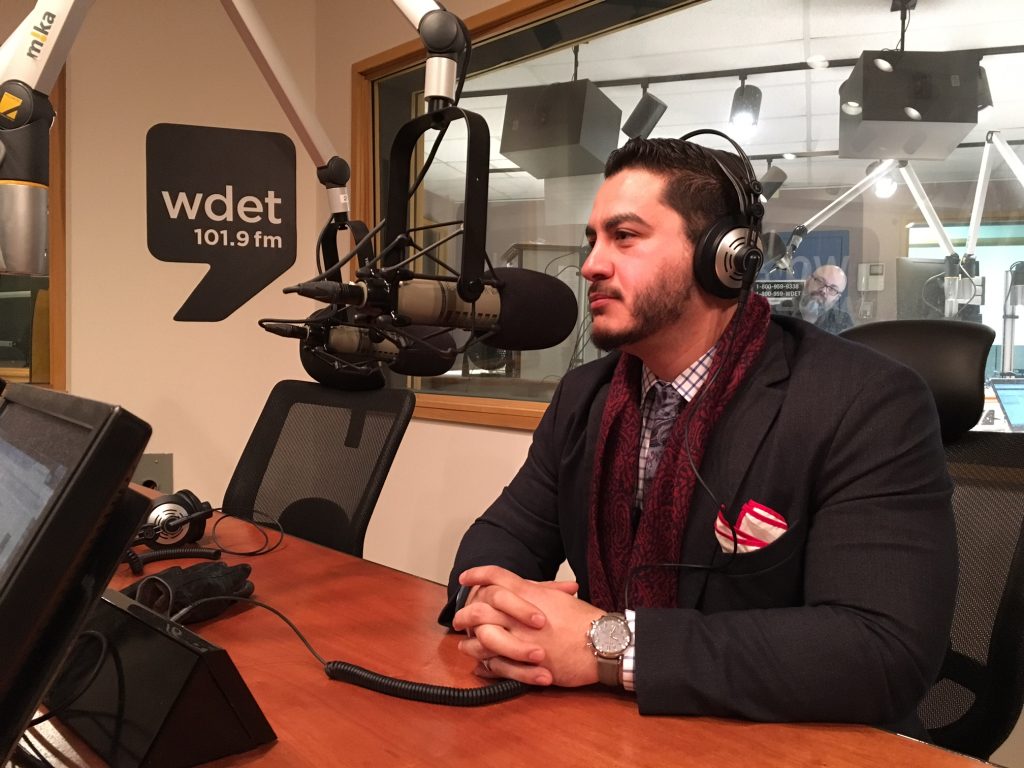Former Gubernatorial Candidate Abdul El-Sayed On Policing and Public Health
El-Sayed served as the City of Detroit’s public health director from 2015 to 2017, and says more money should be pumped into social services.

A number of local governments in Michigan and across the country have declared racism a public health crisis. The move comes as mass protests against police brutality and systemic racism take place across the country in the aftermath of George Floyd’s death in Minneapolis.
“Racism is a public health issue. It is the most important social determinant of health, maybe after poverty, and the two are deeply intertwined.” — Dr. Abdul El-Sayed, former City of Detroit public health director.
Abdul El-Sayed is a former Democratic candidate for governor and served as director of public health in Detroit from 2015 to 2017. El-Sayed is an epidemiologist by training.
He tells WDET’s Jake Neher there’s no question racism is a public health emergency.
Click on the player above to hear Dr. Abdul El-Sayed’s conversation with Jake Neher on racism as a public health crisis.
“I’m glad that politicians are finally coming along,” says El-Sayed. “In the public health world, we’ve been talking about systemic racism and police brutality and mass incarceration and over-policing as public health issues for a long time.”
“Racism is a public health issue. It is the most important social determinant of health, maybe after poverty, and the two are deeply intertwined.”
Re-Funding Public Services
El-Sayed discusses some specific policies that he believes can help address this crisis, including re-allocating money that is now used on policing to public services that he says are more effective at addressing racism and poverty in America. He says these policy goals at first without using the term “defund the police,” which has become a rallying cry in the wake of George Floyd’s murder. But, when asked about it, he says it’s a sentiment he agrees with.
“Defunding the police is disinvesting in the means of incarcerating someone or killing them on the streets and investing more in the means of educating and empowering and engaging communities.”
“We are in a moment when a lot of our public conversation gets chewed down into 280 characters or less. And that is not the best way to talk about anything. So, you’ll note, I didn’t say ‘defund the police,’ I just described what needed to be done. And I do think we need to be really focused on describing or explaining rather than sort of hedging on one side or the other behind a hashtag.”
“Defunding the police is disinvesting in the means of incarcerating someone or killing them on the streets and investing more in the means of educating and empowering and engaging communities with the means of being able to take on systemic poverty that we’ve allowed to fester in too many communities.”
El-Sayed says he like to talk about it as “re-funding.”
“I want a re-fund on the taxpayer dollars that I pay to police who use that to buy war materiel to wage war in our streets. And I want to re-fund public health and public libraries and public schools and the means of uprooting poverty,” he says. “What we call that is, to me, less important than what we do on the problems on the ground.”
Trusted, accurate, up-to-date
WDET is here to keep you informed on essential information, news and resources related to COVID-19.
This is a stressful, insecure time for many. So it’s more important than ever for you, our listeners and readers, who are able to donate to keep supporting WDET’s mission. Please make a gift today.
